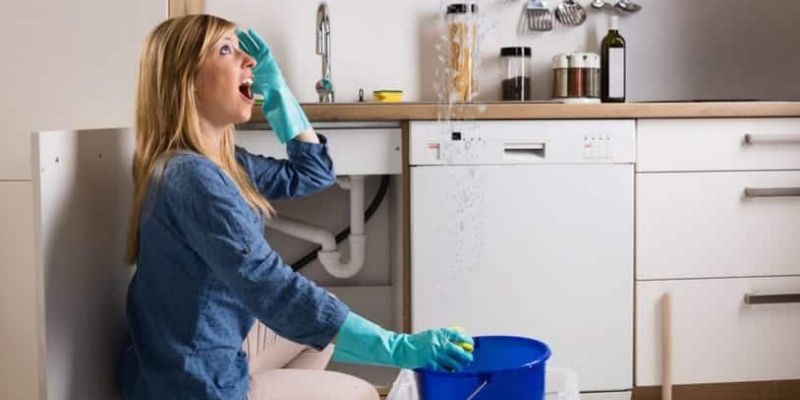Plumbing emergencies can be a nightmare for homeowners. They often occur when least expected and can cause significant damage if not addressed promptly. Being aware of the signs of a plumbing emergency is crucial for early detection and prevention of further problems. In this article, we will explore “What Are the Signs of a Plumbing Emergency?”, providing valuable insights and expert advice to help you take the necessary steps to mitigate potential damage. So, let’s dive in and learn how to identify and respond to plumbing emergencies effectively!
What Are the Signs of a Plumbing Emergency?
-
Burst Pipes
A burst pipe is a clear indication of a plumbing emergency. It can lead to extensive water damage and flooding within your home. Look out for the following signs:
- Sudden decrease in water pressure
- Puddles of water around the house
- Damp or discolored walls and ceilings
- Unpleasant odor indicating stagnant water
If you notice any of these signs, it is essential to act immediately to prevent further damage.
-
Clogged Drains
Clogged drains can be a common plumbing issue, but if left unattended, they can escalate into an emergency situation. Pay attention to the following warning signs:
- Slow drainage in sinks, showers, or toilets
- Gurgling sounds coming from the drains
- Foul odor emanating from the drains
Ignoring these signs can lead to sewer backups or pipe bursts, resulting in extensive damage and costly repairs.
-
Sewer Backup
A sewer backup is a severe plumbing emergency that requires immediate attention. It occurs when the wastewater cannot flow out of your home and starts to back up into sinks, showers, or toilets. Look out for the following signs:
- Multiple drains backing up simultaneously
- Gurgling sounds in drains or toilets
- Foul odor coming from drains or basement
Sewer backups pose health hazards due to the presence of bacteria and sewage contaminants. Contact a professional plumber right away if you suspect a sewer backup.
-
Gas Leaks
Gas leaks are hazardous and demand immediate action. While not strictly a plumbing issue, gas lines are often connected to water heaters and other appliances. Signs of a gas leak include:
- Rotten egg smell (added odorant to natural gas)
- Hissing or blowing sounds near gas lines or appliances
- Dizziness, nausea, or headaches
If you suspect a gas leak, evacuate the premises and contact your gas company and emergency services immediately.
-
Water Heater Malfunction
A malfunctioning water heater can lead to various issues, including scalding, water damage, or even explosions. Watch out for these signs:
- Inconsistent water temperature
- Leaking or pooling water around the water heater
- Strange noises (rumbling, popping) coming from the water heater
Addressing water heater problems promptly can help prevent accidents and ensure the safety of your household.
-
Leaking Fixtures
Leaking fixtures may seem like a minor annoyance, but they can worsen over time, leading to significant damage. Look for the following signs:
- Dripping faucets or showerheads
- Pooling water around fixtures
- Water stains or discoloration on walls or ceilings
Fixing leaks promptly can help save water, prevent damage, and avoid the need for costly repairs in the future.
Frequently Asked Questions (FAQs)
FAQ 1: How can I prevent a plumbing emergency?
Preventing a plumbing emergency starts with regular maintenance and proactive measures. Here are some tips to help you avoid emergencies:
- Schedule routine inspections by a professional plumber.
- Avoid flushing non-biodegradable items down the toilet.
- Install drain screens to prevent debris from clogging pipes.
- Keep an eye on your water bill for sudden increases, which may indicate a hidden leak.
FAQ 2: Can I fix a plumbing emergency myself?
While it may be tempting to try and fix a plumbing emergency yourself, it is often best to leave it to the professionals. Plumbing emergencies require expertise and specialized tools to ensure proper repairs and minimize further damage.
FAQ 3: How can I shut off the main water supply in an emergency?
Knowing how to shut off the main water supply can help mitigate damage during a plumbing emergency. Locate the main water valve in your home (often near the water meter) and familiarize yourself with the shut-off process. Turn the valve clockwise to shut off the water flow.
FAQ 4: Should I contact my insurance company during a plumbing emergency?
It is crucial to contact your insurance company as soon as possible during a plumbing emergency. They can guide you through the claims process and provide necessary assistance to mitigate the damage.
FAQ 5: Are plumbing emergencies covered by homeowners’ insurance?
Most homeowners’ insurance policies cover sudden and accidental water damage caused by plumbing emergencies. However, it is essential to review your policy to understand the specific coverage and exclusions.
FAQ 6: How quickly should I respond to a plumbing emergency?
Time is of the essence during a plumbing emergency. The sooner you respond, the better chance you have of minimizing damage. Contact a professional plumber immediately to assess the situation and initiate repairs.
Wrap Up
Being aware of the signs of a plumbing emergency is crucial for every homeowner. By identifying these signs early on, you can take prompt action to prevent further damage, save money on repairs, and protect the well-being of your household.
Remember, plumbing emergencies require professional attention, so don’t hesitate to contact a trusted plumber when faced with a crisis. Stay proactive, be prepared, and keep your home safe from plumbing emergencies!

